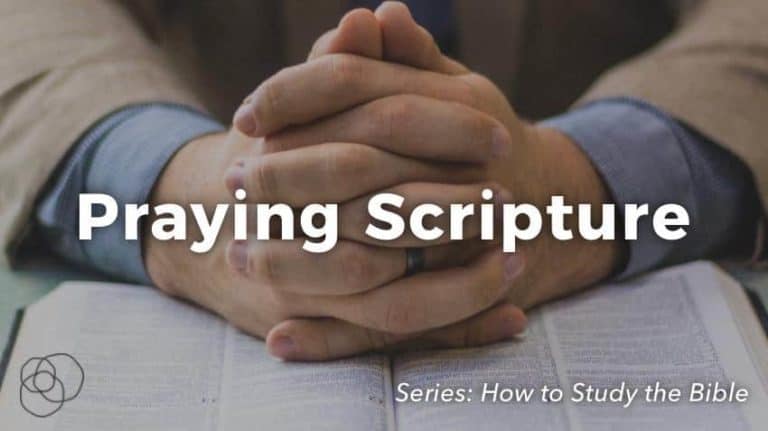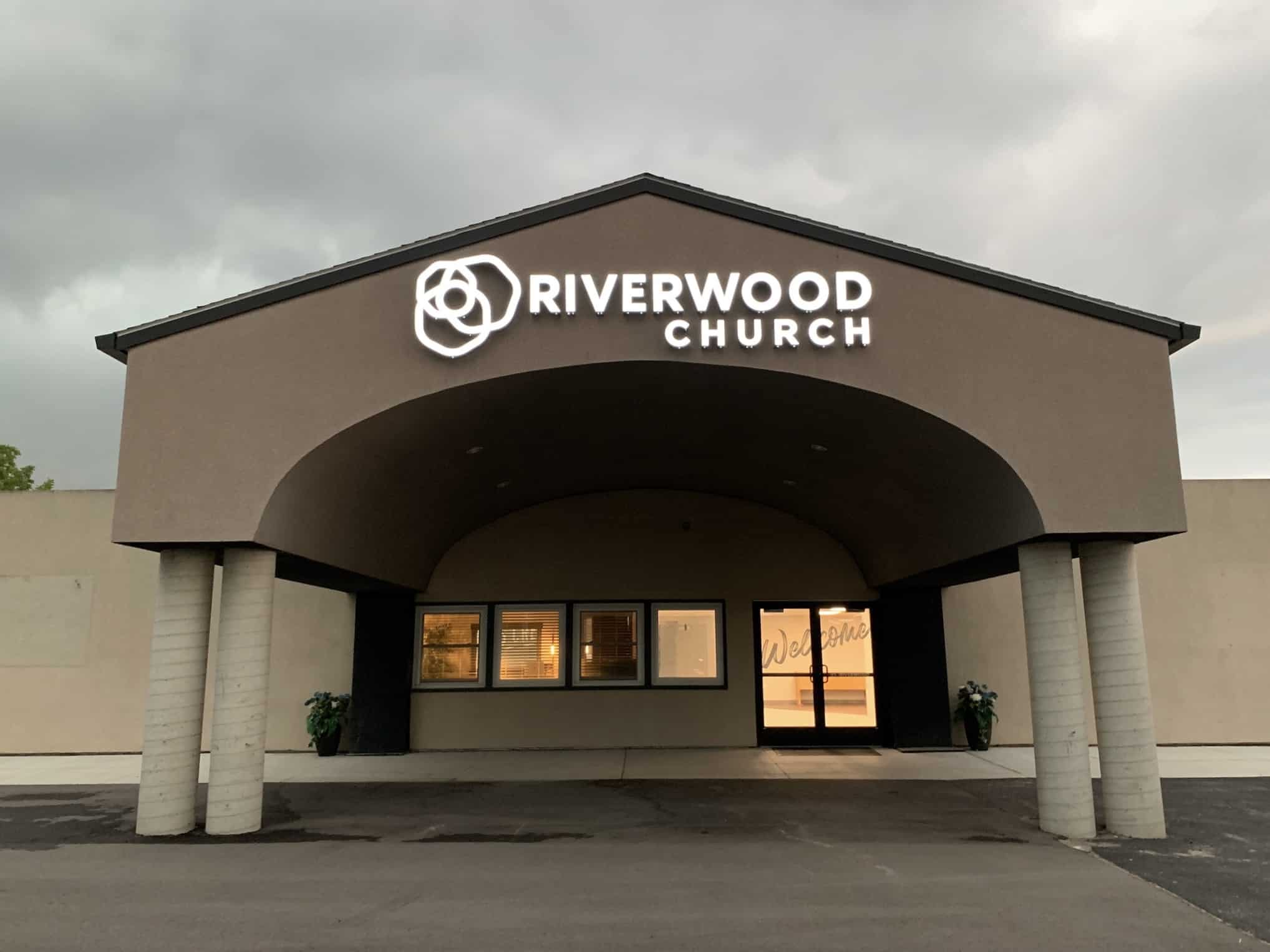
By Erin Bird
Before we get to this week's content, I just need to take a moment and share that I'm really excited about the new series we are starting next Thursday here in the News & Notes. I'm calling the series "What I'm Learning."
What has me so excited about this series is that you will NOT be hearing from me. Rather, you will be hearing from some of our own Riverwood family! And their job is simple: to share what God is teaching them during this season in their lives.
My hope is that by hearing how God is working in different individuals in our church family, it will encourage you in your own spiritual walk. So be sure to open up next week's email as our new elder, Matt Townsley, kicks the series off.
And now, back to our regularly scheduled programming...
The End of Bible Study
Okay, I admit. That's a misleading subtitle. Of course I do not want to see you come to the end of studying the Bible. (If I did, I wouldn't have bothered doing a 7-week series on the topic!) But this week IS the end of our series on various Bible Study methods.
And if I'm being truly honest with you and with myself, this week's topic isn't exactly a Bible study method. It won't help you understand the context, or go deep with a word, or even help you become more familiar with the Bible through repetition. But it will help you go deeper in your faith through the Scripture. And as you most likely already know because of the image above and the title of this week's article, what I am talking about is using the Bible to guide your prayers.
Letting God's Words Guide Your Words
I don't know about you, but every once in a while, I have a desire to pray, but I don't quite know what to say or how to say it. So why not let God's eternal words guide your words in the moment? In other words, let the Scripture give you the words to pray.
For instance, last Sunday I taught from Hebrews chapters 3 and 4. Let's take very last portion of that passage (4:14-16) to see what "praying the Scripture" might look like. First, here's the passage:
"Since then we have a great high priest who has passed through the heavens, Jesus, the Son of God, let us hold fast our confession. For we do not have a high priest who is unable to sympathize with our weaknesses, but one who in every respect has been tempted as we are, yet without sin. Let us then with confidence draw near to the throne of grace, that we may receive mercy and find grace to help in time of need."
And here's what you might pray:
"Heavenly Father, I thank you for Jesus, Your Son and my great high priest, who passed through the heavens and the cross for me. Help me, Father, to hold fast to my confession of the gospel. I confess my need for Jesus at all times. And Jesus, I thank you for becoming human so that I would know you are able to sympathize with my weaknesses, knowing what I face and go through each day. And yet, even though you knew what it was like to be tempted like I am tempted, you went through this life without sin. And so because you are so great, and also so loving, help me to draw near your throne of grace with confidence - confidence that I will receive mercy. Confidence I will receive grace. Confidence you will be with me in my time of need. And confidence that you will answer my prayers perfectly."
Prayer Tips
1. Let the Scripture guide.
Don't feel like you have to force anything or get flowery in your speech. If you don't quite know what to say next, let the next verse or phrase lead you.
2. Don't force the Scriptures to be a script.
Praying Scripture does not mean ONLY reciting back the words of the Bible to God. Rather, it is about allowing the Scriptures to guide your heart and mind to know what to say to God and connect with Him.
3. Use a good Bible translation.
While I use the ESV (English Standard Version), for both preaching and personal reading, some people find the slightly-more-theological language of the ESV a bit harder to read than others. So use a version of the Bible that is reliable, yet readable. The versions I tend to recommend to people (other than the ESV) are:
Praying Scripture
By Erin Bird
Before we get to this week's content, I just need to take a moment and share that I'm really excited about the new series we are starting next Thursday here in the News & Notes. I'm calling the series "What I'm Learning."
What has me so excited about this series is that you will NOT be hearing from me. Rather, you will be hearing from some of our own Riverwood family! And their job is simple: to share what God is teaching them during this season in their lives.
My hope is that by hearing how God is working in different individuals in our church family, it will encourage you in your own spiritual walk. So be sure to open up next week's email as our new elder, Matt Townsley, kicks the series off.
And now, back to our regularly scheduled programming...
The End of Bible Study
Okay, I admit. That's a misleading subtitle. Of course I do not want to see you come to the end of studying the Bible. (If I did, I wouldn't have bothered doing a 7-week series on the topic!) But this week IS the end of our series on various Bible Study methods.
And if I'm being truly honest with you and with myself, this week's topic isn't exactly a Bible study method. It won't help you understand the context, or go deep with a word, or even help you become more familiar with the Bible through repetition. But it will help you go deeper in your faith through the Scripture. And as you most likely already know because of the image above and the title of this week's article, what I am talking about is using the Bible to guide your prayers.
Letting God's Words Guide Your Words
I don't know about you, but every once in a while, I have a desire to pray, but I don't quite know what to say or how to say it. So why not let God's eternal words guide your words in the moment? In other words, let the Scripture give you the words to pray.
For instance, last Sunday I taught from Hebrews chapters 3 and 4. Let's take very last portion of that passage (4:14-16) to see what "praying the Scripture" might look like. First, here's the passage:
"Since then we have a great high priest who has passed through the heavens, Jesus, the Son of God, let us hold fast our confession. For we do not have a high priest who is unable to sympathize with our weaknesses, but one who in every respect has been tempted as we are, yet without sin. Let us then with confidence draw near to the throne of grace, that we may receive mercy and find grace to help in time of need."
And here's what you might pray:
"Heavenly Father, I thank you for Jesus, Your Son and my great high priest, who passed through the heavens and the cross for me. Help me, Father, to hold fast to my confession of the gospel. I confess my need for Jesus at all times. And Jesus, I thank you for becoming human so that I would know you are able to sympathize with my weaknesses, knowing what I face and go through each day. And yet, even though you knew what it was like to be tempted like I am tempted, you went through this life without sin. And so because you are so great, and also so loving, help me to draw near your throne of grace with confidence - confidence that I will receive mercy. Confidence I will receive grace. Confidence you will be with me in my time of need. And confidence that you will answer my prayers perfectly."
Prayer Tips
1. Let the Scripture guide.
Don't feel like you have to force anything or get flowery in your speech. If you don't quite know what to say next, let the next verse or phrase lead you.
2. Don't force the Scriptures to be a script.
Praying Scripture does not mean ONLY reciting back the words of the Bible to God. Rather, it is about allowing the Scriptures to guide your heart and mind to know what to say to God and connect with Him.
3. Use a good Bible translation.
While I use the ESV (English Standard Version), for both preaching and personal reading, some people find the slightly-more-theological language of the ESV a bit harder to read than others. So use a version of the Bible that is reliable, yet readable. The versions I tend to recommend to people (other than the ESV) are:
4. Use most of the Bible.
Lastly, there are quite a few passages throughout the Bible that can guide you in prayer, but realize passages like genealogy (such as Genesis 5) or heavily historical sections (such as the rest of Genesis) will be difficult as prayer guides. Instead,
Don't just open to a random spot and start praying. Otherwise you might get frustrated trying to pray through Matthew's begats.
In Conclusion
I hope you'll take some time this week to pray through the Scriptures, letting them guide your words to our Heavenly Father. Occasionally, when I pray through the Bible, I find it very refreshing, and every once in a while I see something in the Scripture I haven't noticed before.
Also, I hope that of the handful of Bible study methods we have looked at these past 7 weeks, at least one of them has (or will) help you go deeper in your faith through a study of God's word. After all...
"All scripture is breathed out of God and profitable for teaching, for reproof, for correction and for training in righteousness, that the man of God may be competent, equipped for every good work."
May you find great joy in Jesus through studying God's Word!
Receive Riverwood's "News & Notes" weekly email in your inbox. Submit your email address below and stay in the loop.

We are on a mission to help people love like Jesus loved and live like Jesus lived.
It doesn't matter to us if you:
No matter where you are in your spiritual journey, we want to help you become who God has created you to be.